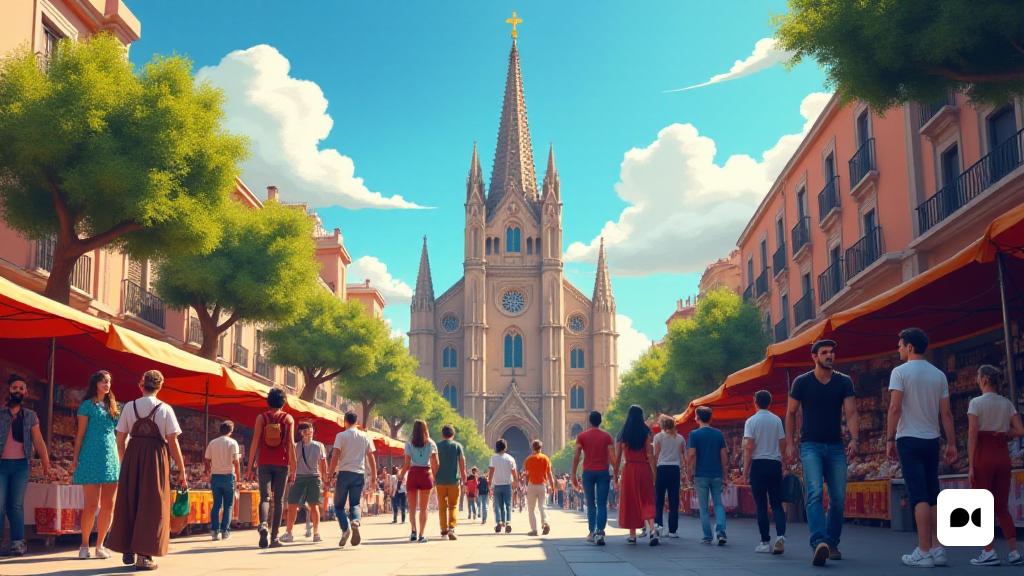The awakening of non -belief
Catalonia is positioned as one of the most secularized regions of Spain, where the weight of the Catholic religion, despite its long tradition, has lost its strength in recent years. According to data from the period 2023-2024, people who declare themselves non-nuns have surpassed the 51%barrier for the first time, reflecting a significant change in social dynamics.
Trends in religious identification
Secularization has been evident in recent years, with a constant increase in non -believers from 39% in 2014 to 51.3%. In contrast, the data on Catholic identity has a more complex image; Although the figures indicate that Catholics have fallen below 50%, 56-57% of the population is still defined as culturally Catholic. This dichotomy reveals a relationship with religion marked by tradition more than active practice.
Religious practice in numbers
The data on religious practice are even more revealing: an impressive 86.9% of the population does not regularly participate in any religious activity. Only 3% attend religious services more than once a week, while 5% do so weekly. Thus, it is clear that most Catalans only go to religious events at specific times, such as parties or family celebrations.
The expanding religious diversity
Despite the decline of Catholicism, Catalonia is also the scene of an emerging religious plurality. About 16% of the population practices alternative religions, including Protestantism, Islam, and Buddhism, among others. Cities like Barcelona have seen their evangelical and Muslim communities grow, although the majority of the population is still identifying with the Catholic tradition.
New generations and religiosity
The data indicate that among young people under 34, about 60% declare themselves non -religious. However, there is a remarkable exception: men aged 18 to 25 show religious levels compared to those of people over 65. This discrepancy suggests that younger generations could be at a time of transition that can influence the future of Catholicism in the region.
Final reflections on Catalan identity
Catalan society is in a time of redefining its religious and cultural identity. With 51.3% of the population considered non -religious, the question of how this change will be influenced by social cohesion and long -term cultural traditions. The interaction between secularization and religious diversity could mark a new path for Catalonia, which deserves to be carefully observed in the coming years.

